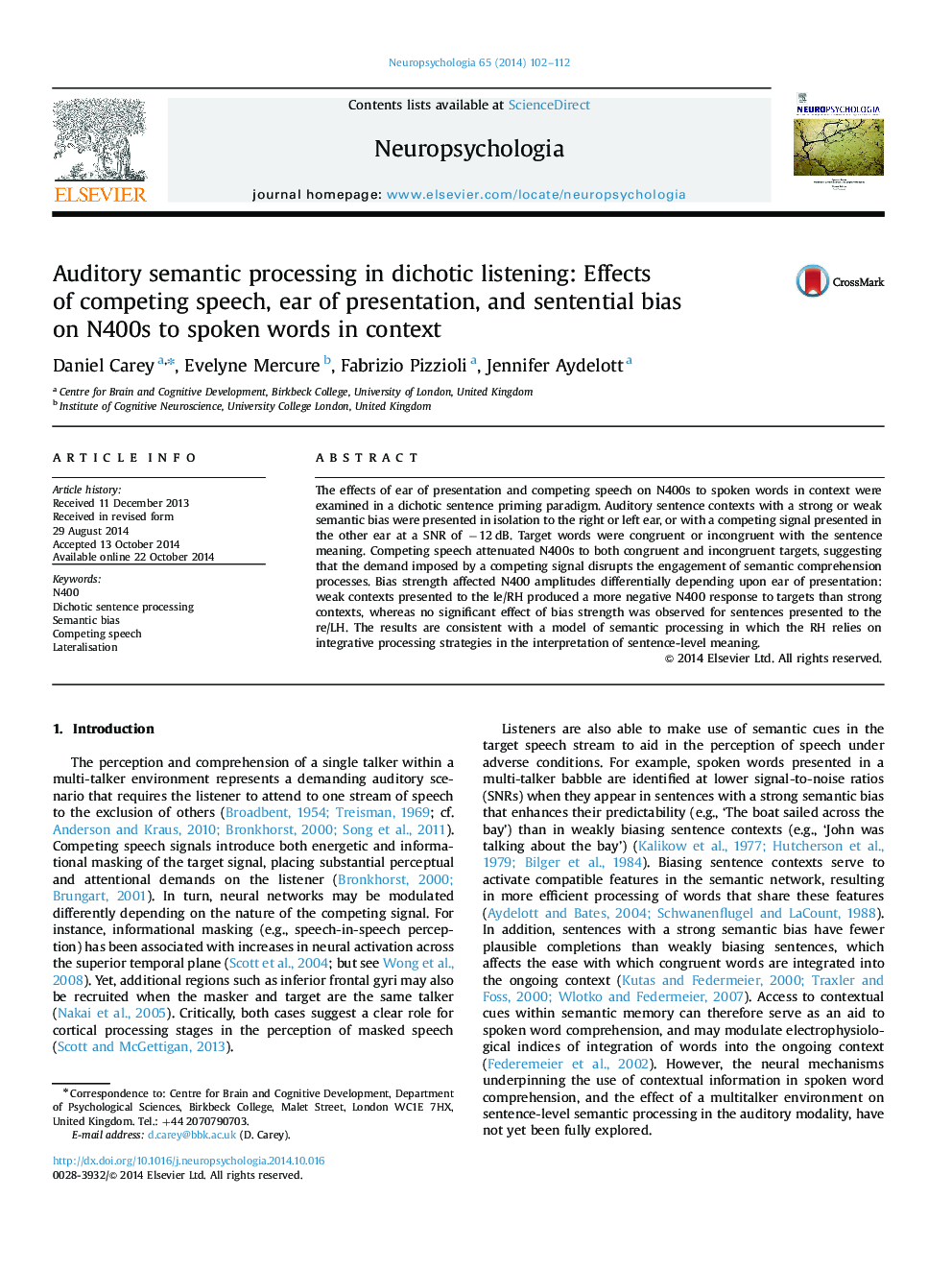| Article ID | Journal | Published Year | Pages | File Type |
|---|---|---|---|---|
| 7320687 | Neuropsychologia | 2014 | 11 Pages |
Abstract
The effects of ear of presentation and competing speech on N400s to spoken words in context were examined in a dichotic sentence priming paradigm. Auditory sentence contexts with a strong or weak semantic bias were presented in isolation to the right or left ear, or with a competing signal presented in the other ear at a SNR of â12Â dB. Target words were congruent or incongruent with the sentence meaning. Competing speech attenuated N400s to both congruent and incongruent targets, suggesting that the demand imposed by a competing signal disrupts the engagement of semantic comprehension processes. Bias strength affected N400 amplitudes differentially depending upon ear of presentation: weak contexts presented to the le/RH produced a more negative N400 response to targets than strong contexts, whereas no significant effect of bias strength was observed for sentences presented to the re/LH. The results are consistent with a model of semantic processing in which the RH relies on integrative processing strategies in the interpretation of sentence-level meaning.
Keywords
Related Topics
Life Sciences
Neuroscience
Behavioral Neuroscience
Authors
Daniel Carey, Evelyne Mercure, Fabrizio Pizzioli, Jennifer Aydelott,
